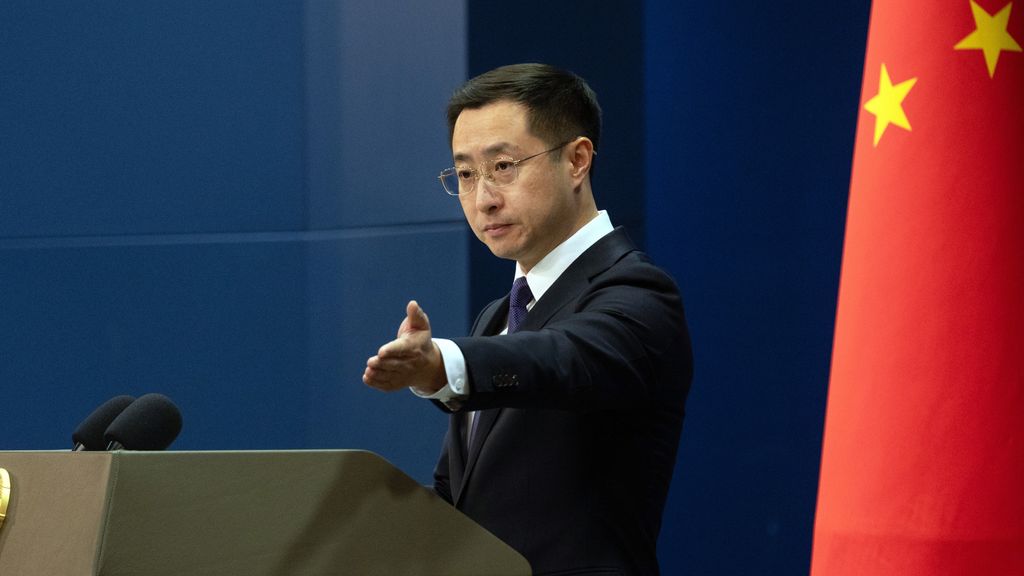
This article was last updated on August 19, 2025
Canada: ![]() Oye! Times readers Get FREE $30 to spend on Amazon, Walmart…
Oye! Times readers Get FREE $30 to spend on Amazon, Walmart…
USA: ![]() Oye! Times readers Get FREE $30 to spend on Amazon, Walmart…
Oye! Times readers Get FREE $30 to spend on Amazon, Walmart…
Table of Contents
Foreign journalists in China see more and more ‘red lines’ during their work
Foreign journalists in China notice that fewer and fewer topics can be notified freely and that the Chinese government is increasingly checking this. This is apparent from a report From the Foreign Correspondents’ Club China (FCCC), which writes annually about media freedom based on experiences of foreign journalists in China.
The journalists speak of new ‘red lines’ and are concerned about the growing number of ‘forbidden subjects’. Traditional topics such as the regions of Xinjiang, Tibet and Hong Kong remain taboo. Just like all reports about Chinese President Xi.
But in the past year the journalists notice that it is also becoming increasingly difficult to write about everyday topics such as the Chinese economy, unemployment, the policy on technology and electric vehicles. Various journalists also noticed that they were opposed to cultural events, such as a report on Halloween in Shanghai.
Intimidation and violence
Almost nine out of ten journalists indicate in the report that interviews are refused. More than a third report has also reported intimidation or harassment by Chinese colleagues and almost one in ten was confronted with physical violence.
The journalists also have to deal with problems applying for a visa. In several cases it led to threats and lawsuits. Almost all respondents say that the freedom of the press does not meet international standards. The image is in line with the Word Press Freedom Index. On that list, about how the freedom of the press is doing, China is featured at the bottom, North Korea and Eritrea.
The Chinese government has not yet responded to the report. In the past, however, the Ministry of Foreign Affairs has often labeled the FCCC as “illegal” and the Ministry does not recognize the organization. According to China, a small club of Western journalists twisted the facts “to blacken China”.
Propaganda via social media
The Chinese government is therefore actively busy sketching a different image of China. It wants to show a positive image of China to the world, including to attract more tourists to the country, which is good for the Chinese economy.
They increasingly do this via social media such as Tiktok or YouTube. For example, one of the most popular influencers, Ishowspeed, was used to come to China and only show how beautiful the country is. Ishowspeed has around 120 million followers on both Instagram, Tiktok and YouTube. The videos were viewed more than a billion times on all platforms.
Through the motto “Tell China’s Story Well” launched by President Xi, China tries to offer an alternative to the negative reporting about China from the West. The emphasis here is on foreign media. Various Chinese state media are looking for a collaboration with international newspapers and media platforms to show a wider audience “the real China” that is only positive.
Among other things, the Australian think tank Aspi concluded earlier that the Chinese government is increasingly using this type of propaganda. Originally the government focused primarily on its own platforms and on the Chinese, but now more and more use of Western social media is being used and people are focusing more on foreign viewers.
China correspondent Laura van Megen:
“The opposition takes place in several ways. In the province of Jiangxi, where China’s rare earth metals are sitting in the ground, we had a new follow -up car after us for days. In Wuhan, sources told me that the State Safety Service had visited, and that they had to cancel the interview.
The Chinese were scared by their government to say something ‘wrong’ to foreign journalists. If the microphone or camera is off, open conversations about their personal problems or the position of the economy are regularly possible. But turn on the camera or microphone and it is said that there is no dirt in the air, followed by a small hymn for the government.
This report is about the limitations that foreign journalists experience, but the most oppressed group of journalists in China are the Chinese journalists themselves. They are told exactly what they are and what they are not allowed to write. Out of self -protection, they strictly comply with the formal and informal rules. What was allowed today may not be allowed tomorrow. And that can be dearly. “
Share article:

Be the first to comment